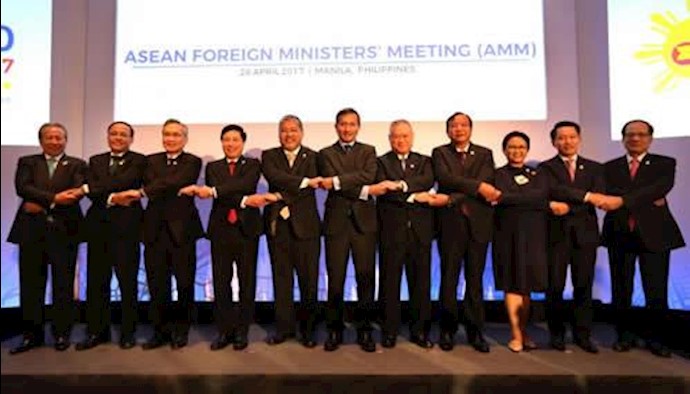MANILA, Reuters, Apr 28, 2017 – Malaysian Prime Minister Najib Razak warned on Friday that Southeast Asian countries needed to ensure their economic growth was inclusive, or risk marginalized people turning to violent extremism or even overturning political systems.
“We know that those who see no hope in their own societies are more prone to the siren calls of terrorists who can exploit their vulnerability and fill them with their lies,” Najib told an entrepreneurship event during the Association of South East Asian Nations (ASEAN) summit in Manila.

Malaysian Prime Minister Razak Najib waves to photographers upon arrival at the Manila International Airport in Pasay city, metro Manila, Philippines April 27, 2017.
Islamist extremism is expected to be on the agenda, with fears for Indonesia, Malaysia and the Philippines about piracy, the rising threat of Islamic State and the ease in which militants can acquire weapons and move between countries.
But the first order of the summit addressed a more pressing threat, as ASEAN called for calm from all involved in tensions on the Korean peninsula.
U.S. President Donald Trump in an interview with Reuters said a “major, major conflict” was possible with North Korea over its missile programs and China said the situation could slip out of control.
In a rare, stand-alone statement, ASEAN urged North Korea and all parties concerned “to exercise self-restraint in order to de-escalate the tension and refrain from actions that may aggravate the situation.”
Indonesia’s Foreign Minister Retno Marsudi said all countries were worried.
“The Korean peninsula is not that far from Southeast Asia. So whatever happens in the Korean peninsula, for sure it will affect us,” she told Reuters.
DANGERS OF DISPARITY

Association of Southeast Asian Nations (ASEAN) Foreign Ministers, from left, Malaysia’s Foreign Minister Anifah Aman, Myanmar U Kyaw Tin, Thai Foreign Minister Don Pramudwinai, Vietnam Foreign Minister Pham Binh Minh, Philippine Acting Foreign Affairs Secretary Enrique Manalo, Singapore’s Foreign Minister Vivian Balakrishnan, Brunei Darussalam Foreign Minister Pehin Dato Lim Jock Seng, Cambodia’s Foreign Minister Prak Sokhon, Laos Foreign Minister Saleumxay Kommasith, ASEAN Secretary General Le Luong Minh link arms as they pose for a family photo during the ASEAN Foreign Ministers Meeting (AMM) in Manila, Philippines, April 28, 2017.
Najib lauded the success of the 50-year-old ASEAN in expanding its collective GDP to about $2.7 trillion now, from $87 billion four decades ago, and said the region could become the world’s fourth-largest economy.
ASEAN has 10 members: Thailand, Myanmar, Laos, Cambodia, Vietnam, Singapore, Brunei, Malaysia, Indonesia and the Philippines.
Trade integration was lagging, Najib said, and tariff removal and harmonized customs standards needed to be “vigorously pursued”.
The Malaysian leader, whose premiership has been dogged by corruption allegations and is expected to call an election this year, also warned that economic disparity could be politically destabilizing.
“The neglected underclass of those who felt left behind by economic growth, prosperity and globalization can overturn elections and political systems,” he said.

Cambodia’s Prime Minister Hun Sen, waves to photographers upon arrival at the Manila International airport in Pasay city, metro Manila, Philippines April 28, 2017.
Philippines Vice President Leni Robredo echoed Najib’s call for leaders to pay more attention to their poor.
“The voiceless and the powerless are now raring to be heard… their frustrations are being felt on a global scale,” she said in a speech.
Philippine President Rodrigo Duterte will chair meetings of the ASEAN leaders on Saturday. He made it clear on Thursday that Beijing’s contentious activities in the South China Sea would not be discussed, because it would achieve nothing.
Indonesia’s Marsudi said the South China Sea issue was discussed among her counterparts but the focus was on completing guidelines for negotiating an ASEAN-China maritime code of conduct. Critics are skeptical and say China is trying to buy time.
ASEAN “appreciates very much” China’s cooperation, Marsudi said, and was aiming to finish the framework in a few months.
“The message of ASEAN is, the sooner the better,” she said.








